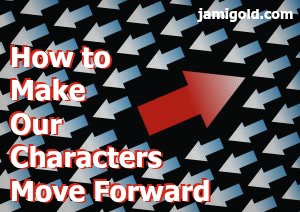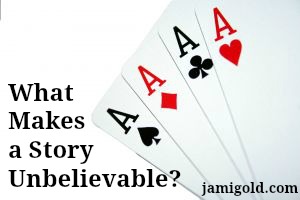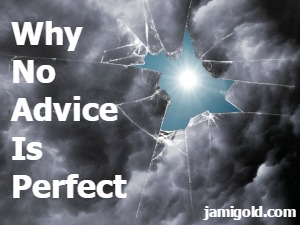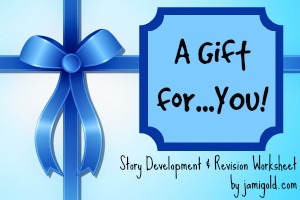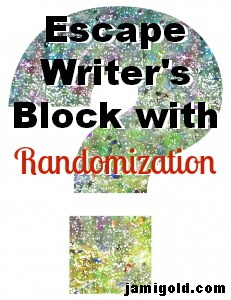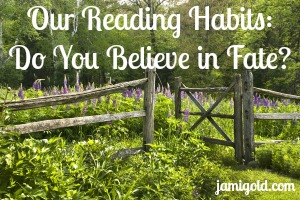Whatever happens in the Climax is often the reason we decided to write the story back when it was just a twinkle in our muse’s eye. But just before the beat of the Climax, our character experienced the Black Moment/Crisis, where they gave up. How do we get them to recommit to the story goals?
Pin It
Read More
One truism in writing that’s often repeated is “write what you know.” But that advice can be harmful—at least for fiction writing. I much prefer the advice: Write what you want to learn about. Being open to learning new things for our writing can enrich our lives—and be fun!
Pin It
Read More
Many stories that stick with us over time resonate with some aspect of our life, belief, or worldview. Often, the theme of the story creates that resonance. If we understand what creates a story’s theme, we might be able to improve the resonance of our stories.
Pin It
Read More
As soon as immersion is broken for a reader, their suspension of disbelief is at risk, so we don’t want unbelievable aspects of our story to kick readers out of the story midway. When it comes to believability, issues could crop up within the plot, characters, or worldbuilding, and we have to find the right balance within each of those areas.
Pin It
Read More
We often write about settings or jobs or situations we haven’t experienced, and diversity among our characters should be no different. Today’s guest post is about how we can research and learn more about experiences for which we don’t have first-hand knowledge and avoid the fear of “getting it wrong.”
Pin It
Read More
No matter what genre we write, we’re likely to have to research something. If our stories take place within the real world, we might have to research events, settings, or diseases. If our stories take place outside the real world, we might have to research theories, ideas, or concepts. In other words, today’s post about how to research for writing projects will be relevant to most of us.
Pin It
Read More
There’s never going to be a ‘one size fits all’ guideline for any aspect of writing. Every story is different, so some advice doesn’t apply to us. What’s right for one genre might not be right for another genre. Ditto for the point of view of the story. Or the characters. Or the plot.
Pin It
Read More
I can’t make everyone a winner in my Blogiversary contest, but I can give everyone a gift by releasing a new worksheet. Yay! A couple of my readers asked me to take a look a John Truby’s work and see if I could come up with a worksheet based on his teachings.
Pin It
Read More
Have writer’s block? Or need some brainstorming help? Here’s a huge collection of random generators for both plot and character issues.
Pin It
Read More
Reading is subjective. The stories some of us hate, others love. Personally, I have no interest in non-genre stories. This is not a sign of my inability to think deeply, but rather a personal preference. Mary Buckham’s ideas about the differences between literary and commercial fiction made me wonder about this preference.
Pin It
Read More

